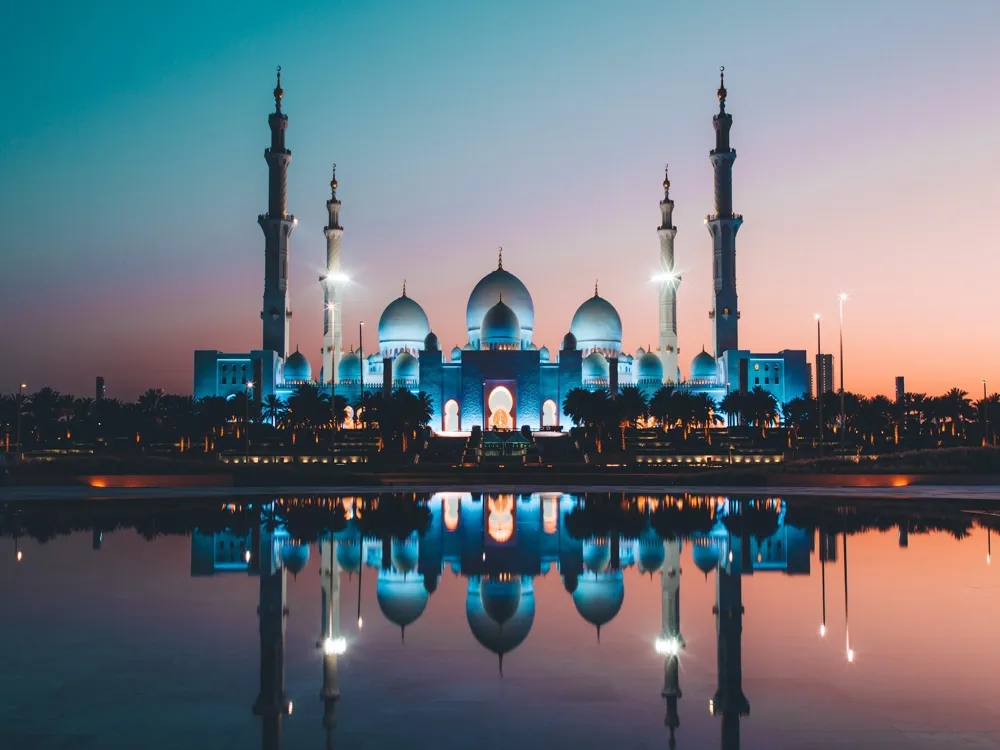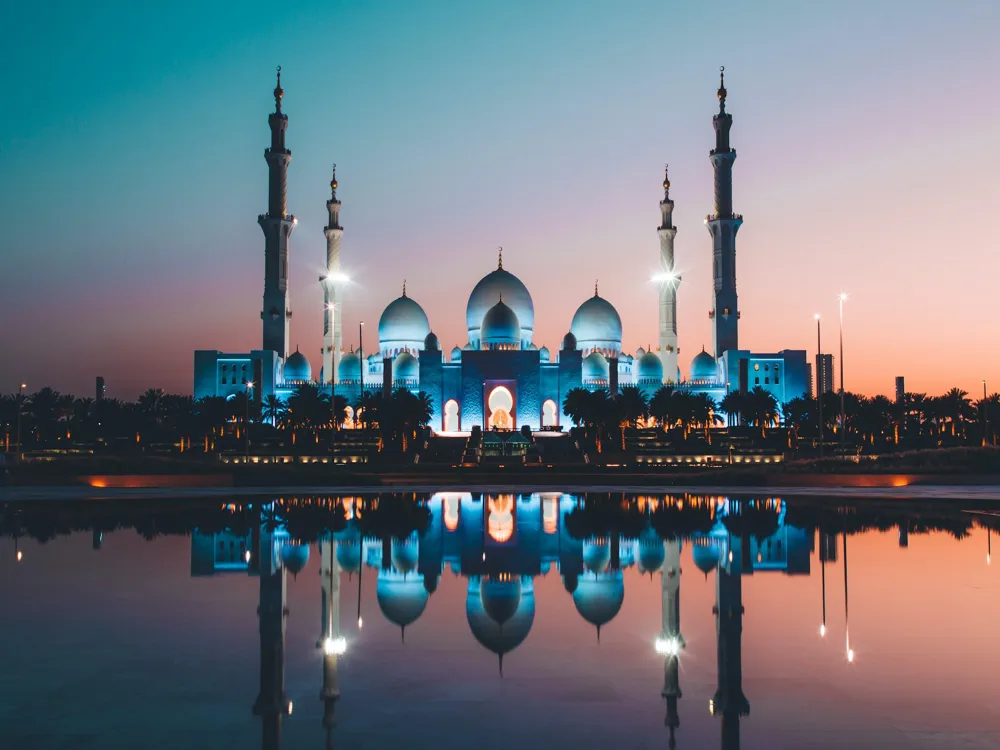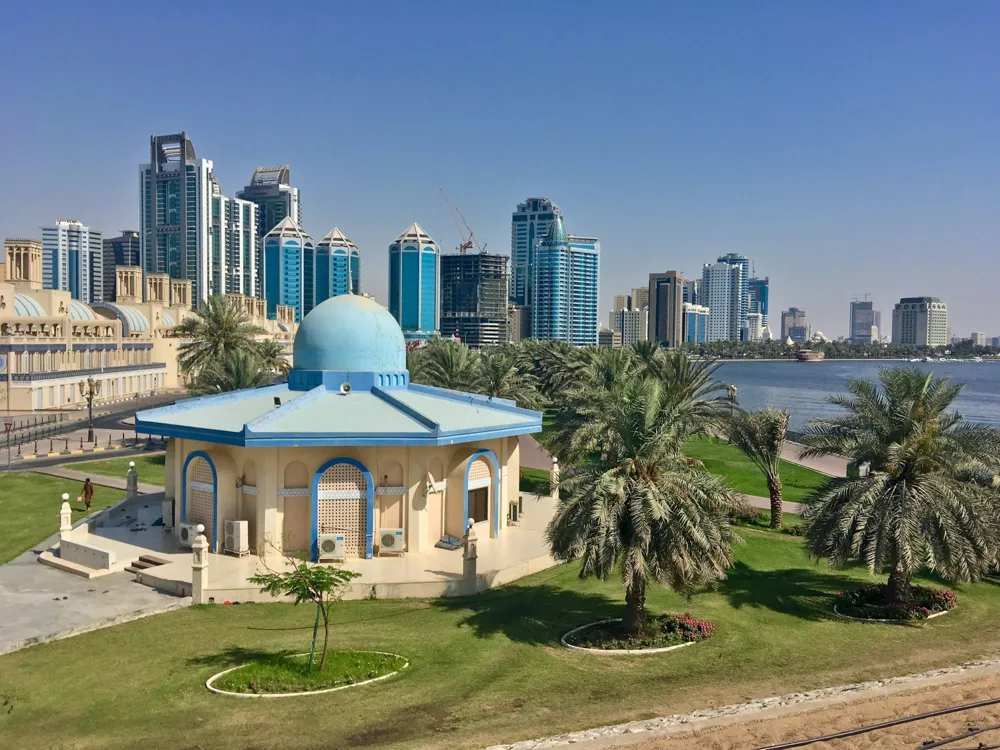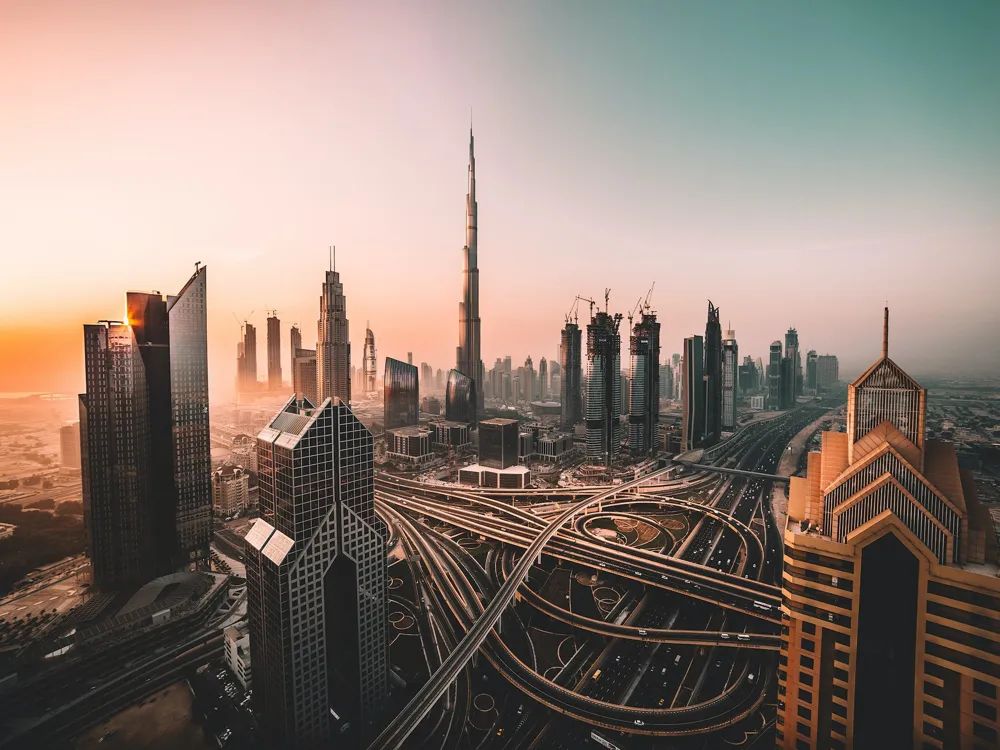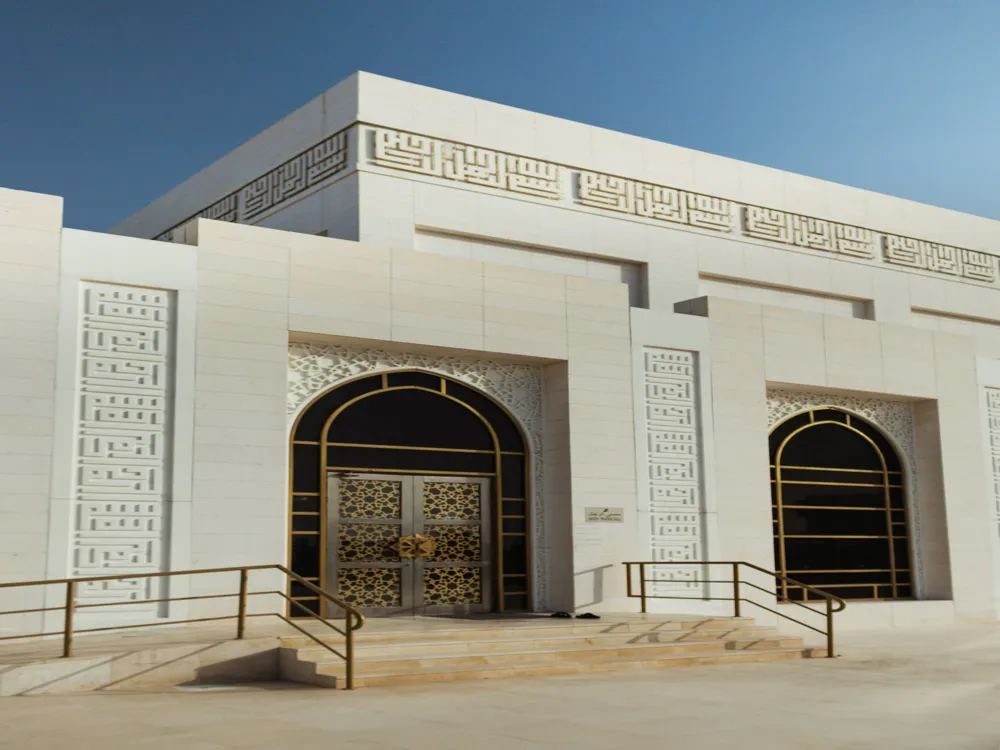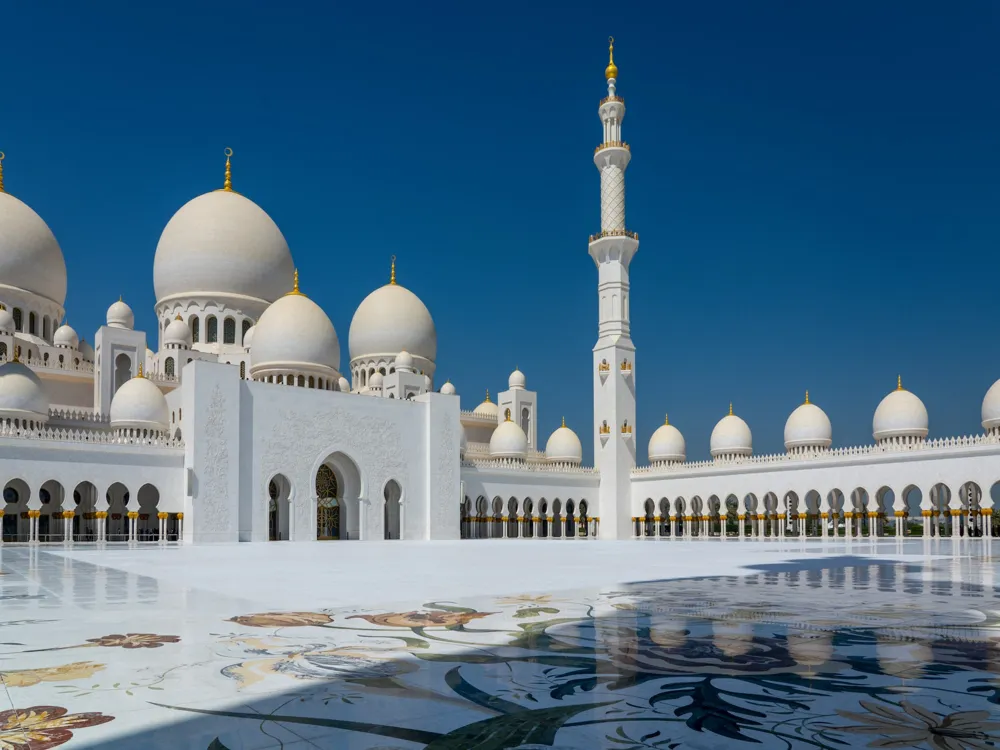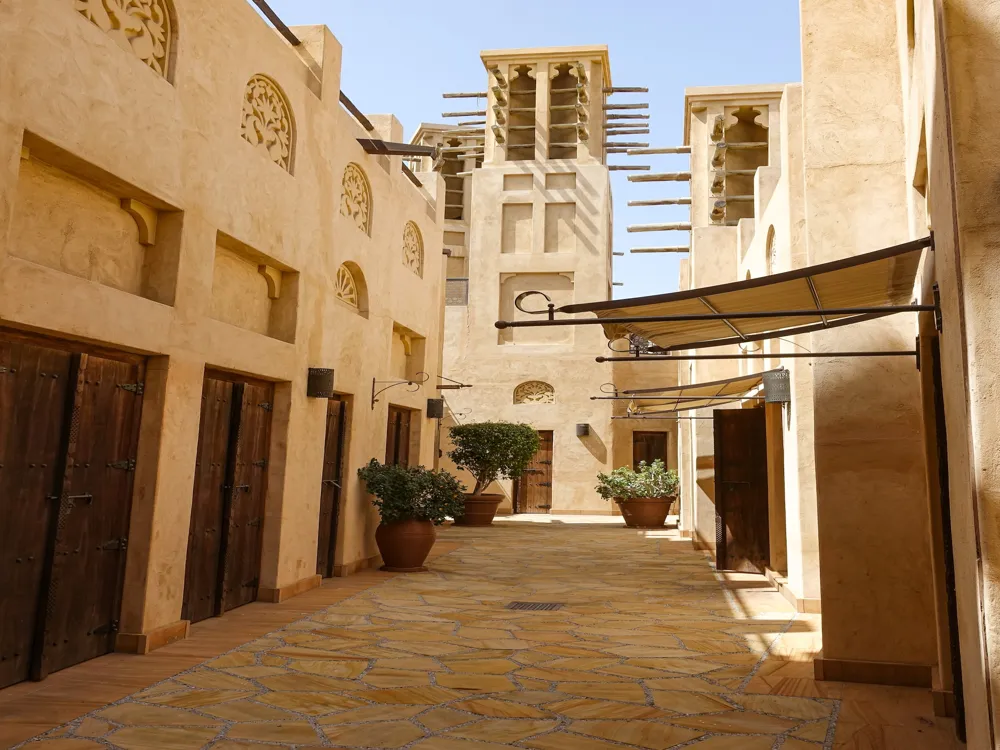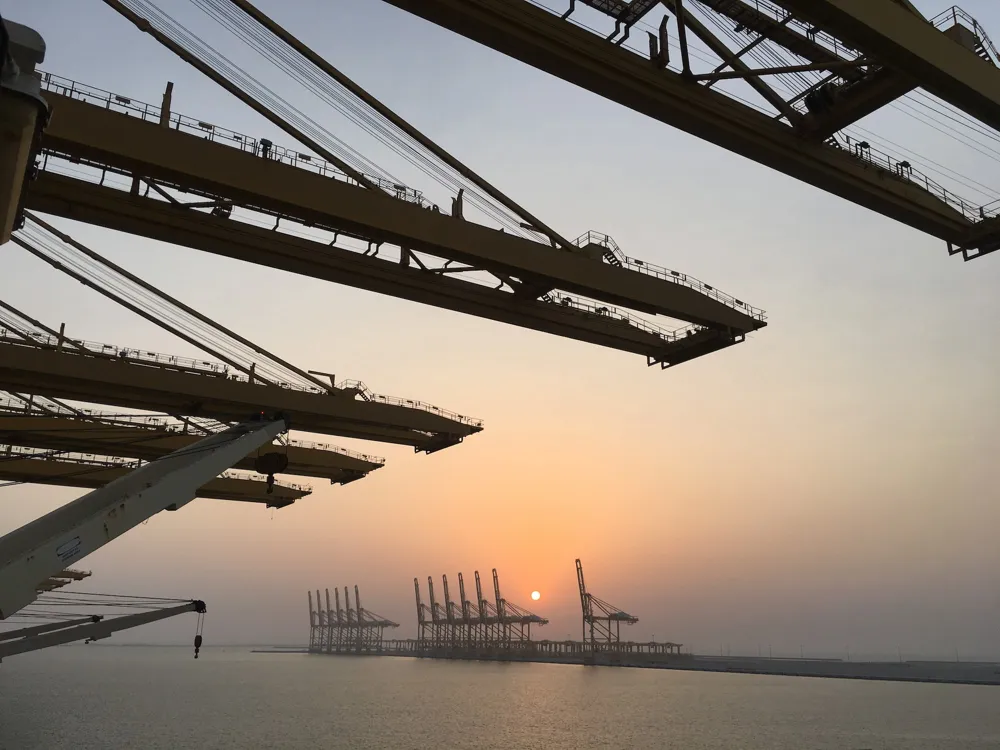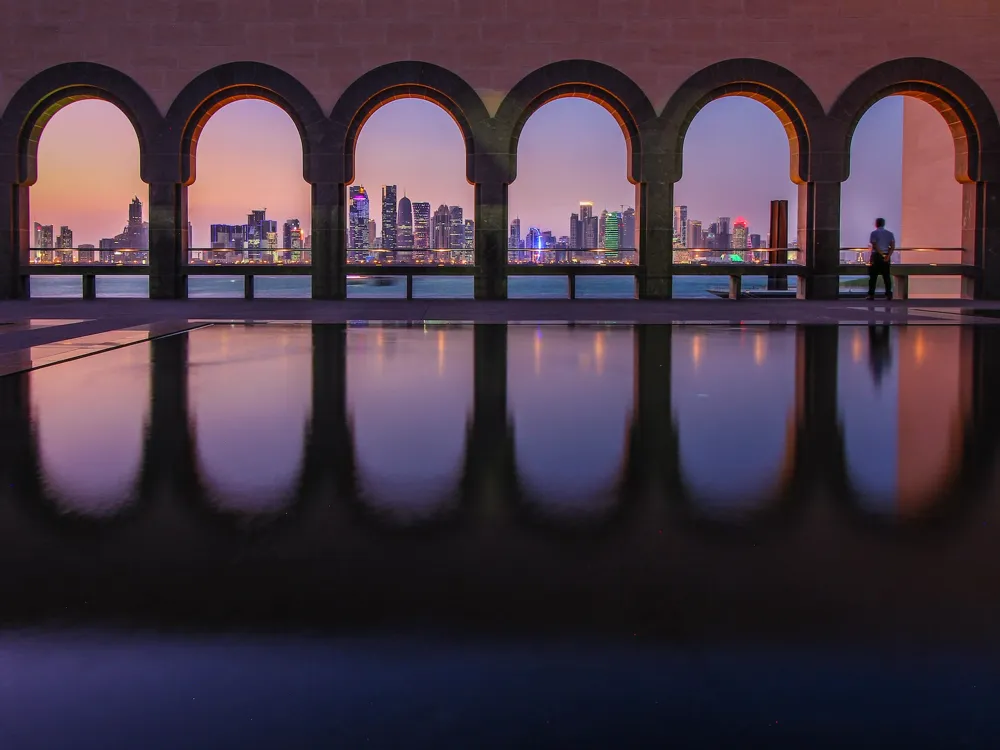Abu Dhabi, the capital city of the United Arab Emirates, is a vibrant blend of cultural heritage and modern sophistication. Located on an island in the Persian Gulf, the city is renowned for its stunning skyscrapers, lush parks, and waterfront promenades. Abu Dhabi's rich history is rooted in ancient civilizations, evolving over centuries into a bustling metropolis. The city's unique geographical location has played a pivotal role in its development, making it a crucial hub for trade, politics, and culture in the Middle East. Today, Abu Dhabi is a symbol of luxury and innovation. Its streets are lined with architectural marvels, ranging from traditional Arabic designs to futuristic buildings that defy conventional aesthetics. The city's diverse population, comprising locals and expatriates, contributes to a multicultural environment, offering a myriad of experiences from authentic Emirati traditions to international influences. Abu Dhabi's economy is primarily driven by oil exports, but in recent years, it has diversified into various sectors including tourism, finance, and renewable energy, making it a dynamic and forward-looking city. Abu Dhabi's history dates back to the 3rd millennium BC, with evidence of early civilizations found in various archaeological sites. The Bani Yas tribe, who were the original inhabitants, settled in the region in the 18th century, laying the foundation for modern Abu Dhabi. The discovery of oil in the 1950s transformed the city from a quiet fishing village into a global powerhouse. This wealth fueled rapid development, turning the city into a blend of traditional Arab culture and modern luxury. The cultural landscape of Abu Dhabi is as diverse as its population. The city is home to numerous cultural institutions like the Louvre Abu Dhabi, which showcases artworks from around the world, and the Zayed National Museum, dedicated to the UAE's founding father. Traditional souks and modern malls coexist, offering a shopping experience that ranges from local handicrafts to high-end fashion. Abu Dhabi's culinary scene is equally varied, with a plethora of dining options featuring global cuisines. Abu Dhabi hosts a variety of annual events and festivals that reflect its rich cultural tapestry. The Abu Dhabi Film Festival and Abu Dhabi Art are prominent events that celebrate international cinema and art. The city also hosts the Formula 1 Etihad Airways Abu Dhabi Grand Prix, a world-class sporting event that attracts visitors from around the globe. Abu Dhabi's geographical highlights include its stunning beaches, tranquil desert landscapes, and lush mangrove forests. The Corniche, with its pristine beaches and manicured gardens, offers a picturesque view of the city skyline. The city is also a gateway to the Empty Quarter, the world's largest continuous sand desert. Abu Dhabi's architecture is a fascinating amalgamation of traditional Islamic designs and cutting-edge modernity. The city's skyline is dotted with architectural landmarks that showcase the ingenuity and vision of contemporary architects. These structures are not just buildings but symbols of Abu Dhabi's ambition and its journey towards becoming a global metropolis. Traditional architecture in Abu Dhabi is characterized by its functionality and simplicity, designed to adapt to the harsh desert climate. Features like wind towers, courtyards, and thick walls were common in old Emirati buildings. In contrast, modern architecture in Abu Dhabi is defined by its bold designs and innovative use of technology. The city's push towards sustainable development is also evident in its architecture, with many buildings incorporating eco-friendly practices and materials. Abu Dhabi is home to several iconic landmarks that have become synonymous with the city. The Sheikh Zayed Grand Mosque, a masterpiece of Islamic architecture, features 82 domes, over 1,000 columns, and the world's largest hand-knotted carpet. The Louvre Abu Dhabi, designed by renowned architect Jean Nouvel, is a testament to the city's commitment to cultural exchange, with its stunning dome creating a mesmerizing 'rain of light' effect. The city's skyline is defined by its innovative skyscrapers like the Capital Gate, which holds the Guinness World Record for the world's furthest-leaning man-made tower. The ADNOC Headquarters, with its sleek design and energy-efficient features, reflects Abu Dhabi's modern ethos and its focus on sustainability. Abu Dhabi's urban planning is centered around creating a sustainable and livable city. The plan 2030 envisions a city that balances urbanization with environmental preservation, promoting green spaces, efficient public transport, and renewable energy sources. The city's architecture is deeply influenced by its cultural heritage. This is evident in the design of buildings like the Qasr Al Hosn, the oldest stone building in Abu Dhabi, which has been meticulously restored to preserve its historical significance. Abu Dhabi is best visited during the cooler months from November to March. The weather is pleasant, making it ideal for outdoor activities and exploring the city. When visiting Abu Dhabi, it's important to respect local customs. Dress modestly, especially when visiting religious sites. Public displays of affection are frowned upon. Abu Dhabi has a well-developed public transportation system. Taxis are readily available, and the city is also served by a network of buses. Renting a car is another convenient option for exploring the city. Arabic is the official language, but English is widely spoken. Most signs are in both Arabic and English, making it easy for tourists to navigate the city. Abu Dhabi is accessible via the Abu Dhabi International Airport, one of the busiest airports in the world, offering flights to and from numerous global destinations. The city is also connected by a network of highways, making it easily reachable by car or bus from neighboring emirates. For those seeking a more scenic route, ferries, and cruises also operate to and from Abu Dhabi, providing a unique perspective of the city’s coastline. Read More:Overview of Abu Dhabi
Historical Significance
Cultural Landscape
Annual Events and Festivals
Geographical Highlights
Architecture of Abu Dhabi
Iconic Landmarks
Innovative Skyscrapers
Urban Planning
Cultural Influence in Design
Tips When Visiting Abu Dhabi
Best Time to Visit
Dress Code and Etiquette
Transportation Tips
Language and Communication
How To Reach Abu Dhabi
Abu Dhabi Falcon Hospital
Abu Dhabi
₹ 23,000 onwards
View abu-dhabi Packages
Weather :
Tags : Landmark
Timings : Sunday to Thursday - 8:30 AM - 2:30 PM, Closed on Friday and Saturday
Time Required : 1 - 2 hrs
Entry Fee : No Entry Fee; Guided Tours: AED 120 for adults, AED 70 for children
Planning a Trip? Ask Your Question
Abu-dhabi Travel Packages
View All Packages For Abu-dhabi
Top Hotel Collections for Abu-dhabi

Private Pool

Luxury Hotels

5-Star Hotels

Pet Friendly
Top Hotels Near Abu-dhabi
Other Top Ranking Places In Abu-dhabi
View All Places To Visit In abu-dhabi
View abu-dhabi Packages
Weather :
Tags : Landmark
Timings : Sunday to Thursday - 8:30 AM - 2:30 PM, Closed on Friday and Saturday
Time Required : 1 - 2 hrs
Entry Fee : No Entry Fee; Guided Tours: AED 120 for adults, AED 70 for children
Planning a Trip? Ask Your Question
Abu-dhabi Travel Packages
View All Packages For Abu-dhabi
Top Hotel Collections for Abu-dhabi

Private Pool

Luxury Hotels

5-Star Hotels

Pet Friendly










